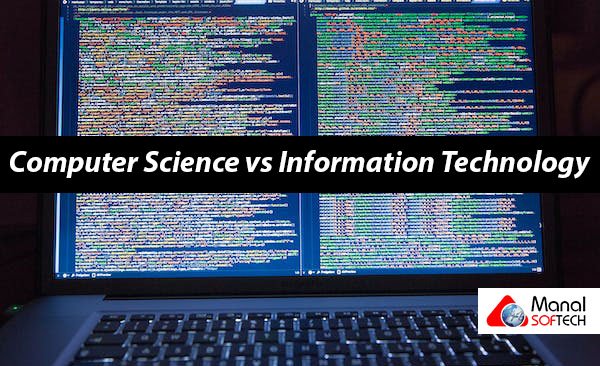IT Degree vs. Computer Science Degree: Choosing the Right Path in Technology

In today's technology-driven world, pursuing a degree in a technology-related field opens up a wide range of career opportunities. Two popular choices for aspiring technologists are an IT degree and a computer science degree. While both degrees offer valuable knowledge and skills, understanding their differences is crucial for making an informed decision. In this blog, we will explore the distinctions between an IT degree and a computer science degree, helping you choose the right path that aligns with your interests and career goals.
IT Degree: Practical Application of Technology
An IT degree, short for Information Technology, focuses on the practical implementation and management of technology systems in various industries. This degree equips students with the skills needed to support computer systems, networks, databases, and software applications in a business setting. IT professionals often work in roles such as systems administration, technical support, network management, and cybersecurity. The curriculum of an IT degree typically includes courses in computer hardware, networking, databases, cybersecurity, systems analysis, and project management. Students gain hands-on experience through practical assignments and real-world scenarios, preparing them for the challenges of the IT industry.
Computer Science Degree: Theoretical Foundations of Computing
A computer science degree delves into the theoretical and scientific aspects of computing. It covers a broad range of topics such as algorithms, data structures, programming languages, software engineering, artificial intelligence, and computer architecture. Computer science graduates acquire skills in programming, software development, data analysis, algorithm design, and problem-solving. They are well-suited for roles like software engineer, software developer, data scientist, research scientist, systems analyst, or artificial intelligence specialist. The curriculum of a computer science degree emphasizes theoretical understanding and mathematical concepts, enabling graduates to tackle complex technological problems and contribute to cutting-edge innovations.
Choosing the Right Path:
When deciding between an IT degree and a computer science degree, consider the following factors:
Interest and Aptitude:
Assess your interests and strengths. Are you more inclined towards practical application and problem-solving (IT), or do you enjoy exploring theoretical foundations and developing innovative solutions (computer science)?
Career Goals:
Determine your desired career path. If you aspire to work in IT management, network administration, cybersecurity, or technical support, an IT degree may be the right fit. On the other hand, if you aim for software development, data analysis, research, or specialized areas like artificial intelligence, a computer science degree would align better with your goals.
Curriculum and Skills:
Evaluate the specific curriculum of each program. IT degrees provide hands-on training in managing technology systems, whereas computer science degrees focus on programming, algorithms, and advanced computer science concepts. Consider which skill set aligns more closely with your desired career trajectory.
In the realm of technology, both IT degrees and computer science degrees offer valuable knowledge and skills. The choice between the two ultimately depends on your interests, career goals, and preferred skill set. An IT degree prepares you for practical implementation and management of technology systems, while a computer science degree provides a deeper theoretical understanding and paves the way for software development, research, and innovation. Take the time to explore the specifics of each program and consider your long-term aspirations to make an informed decision. Remember, whichever path you choose, a degree in a technology-related field will open up a world of exciting opportunities in our ever-evolving digital landscape.
What's Your Reaction?















